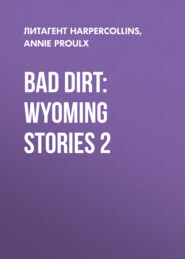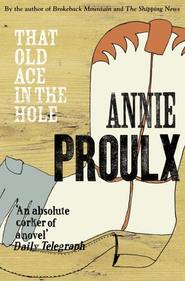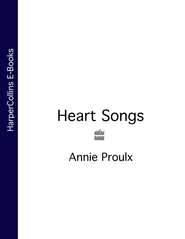По всем вопросам обращайтесь на: info@litportal.ru
(©) 2003-2024.
✖
Postcards
Автор
Год написания книги
2018
Настройки чтения
Размер шрифта
Высота строк
Поля
‘Money’s in the lots. Gonna be a lot of servicemen comin’ back, lookin’ to build. Lot of money changin’ hands. I’m gittin’ my share sure as dammit.’
Tired of getting up in the stench of unwashed clothes and working through the day into darkness again in the stink of burned metal and rank oil, the work never slowing, churning around through three shifts like a bingo tumbler spinning the numbered wooden markers until it slows and a lucky number falls at random. On New Year’s Eve he went to a bar. He went with Elton and Foote who worked the next stations on the line. The bar was jammed with drinkers, War workers with money burning holes, women in slippery rayon dresses, their rolled hair limp in invisible hairnets, powder between their breasts and the black-red lipstick that left soft prints of their lips on the beer glasses and the smell of cigarette smoke and dimestore ‘Evening in Paris’ perfume from tiny blue bottles. When someone came in from the street a broadsword of frigid air cut the smoke.
Loyal pressed up to the bar with Elton and Foote, ordered beer. Elton, a lean hillbilly with crooked arms and a weak bladder was spit drunk in half an hour. Foote nursed a whiskey, staring straight ahead. Loyal found himself between Foote and a woman with a red patent leather belt cinching in her black dress. Her hair was a mass of black-purple curls heaped on her head. The neckline of the dress, shaped like the top of a knight’s shield, presented the tops of her powdered breasts. She smoked Camels, one after another, gradually turning away from Loyal toward an unseen man on her left. Her back pressed against Loyal’s arm. Gradually she shifted her hot taut buttocks until they came up against his thigh. He felt his prick hardening, bulging the front of his good trousers. It had been a long time. Slowly he began to maneuver his hand until it cupped her firm behind and she pressed it against his palm, wriggling until his index finger fitted the gully between her buttocks. Heat came off the sleek rayon. He slid his hand up and down and, with the suddenness of a falling beam, the choking spasm gripped him with terrible strength. He could not breathe. He threw himself backward into the wall of drinkers, bucking and tearing at his throat as if the hangman’s rope cinched his neck. He smelted the char of a burning cigarette against cloth, the pressed tin ceiling with its remorseless design heaved, then fed on him.
When he came out of it he was on a table with a ring of faces staring down at him. The thinnest man pressed bony fingers on Loyal’s wrist. The skeleton’s hair, parted in the middle, was scraped back like a metallic cap. His teeth and eyes were rimmed with gold and there were gold rings on his fingers, a wedding ring and a signet ring on the little finger of the right hand. Loyal felt himself shaking and trembling with a thunderous heartbeat.
‘You’re lucky I was here. They’d have stacked you in the corner with the other drunks. Would have put your light out for good.’
Loyal could not speak his jaw was trembling so hard. His arms shook, but he could breathe. He sat up, and the crowd, disappointed he was still alive, turned back to their glasses.
‘It’s Adrenalin that’s making you shake. I gave you a shot of Adrenalin. You’ll calm down in half an hour or so. You’ve had these attacks before, I take it.’
‘Not like this.’
‘Allergic reaction. Probably something you ate or drank. Tell you what. Make up a list of everything you’ve had to eat or drink in the last day and come see me the day after tomorrow.’
But Loyal knew it wasn’t anything he’d swallowed. It was the touching. Touching the woman. If it wasn’t Billy it wouldn’t be anyone else. The price for getting away. No wife, no family, no children, no human comfort in the quotidian unfolding of his life; for him, restless shifting from one town to another, the narrow fences of solitary thought, the pitiful easement of masturbation, lopsided ideas and soliloquies so easily transmuted to crazy mouthings. Up there beside the wall some kind of black mucky channel that ran from his genitals to his soul had begun to erode.
A soft day, warm enough to grind down the window and get the smell of the country. The black fields stretched for miles, the furrows rising and falling like a calm sea. He thought about pulling into a place and asking if they needed a hand, but didn’t think he could work on another man’s farm, stand there with his hat in his hands asking to be a hired man. He passed a sawmill, tasting the spicy odor of new-sawn wood mixed with the musty smell of old sawdust piles. He smelled his own body on his clothes, even through the laundry soap and a day on the line, not rank, but familiar, the smell of tangled sheets on the bed at home, of his folded blue work shirts.
Corn and wheat farms spraddled out to the horizon, fields cut by white ruler roads edged with farms, everywhere the corners square, the partitioned earth hypnotic, the only relief in converging lines of perspective and distance and the angled flight of birds. Miles of cropland rolled between the rigid farmhouses. Far away he saw a tractor drawing multiple plows in black, contoured furrows as though the driver lay his pattern of curves and bends against the image of a sinuous river held in his mind.
The scale of the farms bothered him. The home place would be a joke to these birds, his twenty-acre field a turnaround space. As he drove he imagined the kind of place he half-planned to find and settle on, not like the home place with its steep rough fields and sour soil, its invading brush and trees, but not like these unrolled landscapes with their revolving skies. He hadn’t known Minnesota was so level. But it was not a quiet landscape. The rise and fall of wind made the land seem to move in slow shudders.
His own place would be a small farm, maybe two hundred and fifty acres, gently swelling earth like the curve of hip and breast, good pasture. He saw his Holsteins grazing, up to their hocks in good grass. The soil would be crumbly and stoneless. There would be a stream with flat rich bottomland on each side for corn and hay crops, and a woodlot, say fifty acres of tall straight hardwood, a sugarbush, low-branched sweet trees on a south slope. On the height of his land he imagined a stand of evergreen, and in the dark spruce a spring welling up from the earth’s pure underground water. Get a tractor, good machinery. He’d make it pay. His hands gripped the steering wheel, he looked in the rearview mirror seeing his steady eyes, the black springing hair. His strength pressured up in him, waiting to be used.
A few miles north of Rice he slowed down when he caught the hitchhiker’s silhouette, flaring bell-bottom pants and jaunty cap. The sun baked the hood. He was feeling good moving out again after the greasy shop, in the mood for company. He pulled up. The echo of the engine’s smooth beating sounded sweet to him. The sailor was a big, sandy-headed man, a potato face and needle eyes, his mood to talk entering the car before he did.
‘You’re a sight for sore eyes,’ said the man. ‘I been standin’ here and shufflin’ along and standin’ some more for about two days. I Jesus Christ swear I got to look like trouble, must put the fear of the old Harry in drivers. Ain’t this a nice spring day? Everybody picks up a serviceman, I get rides from Norfolk to here took me two days, three rides, but not in Minnesota! No sir, not here in my goddamn home state where Suspicious is everybody’s middle name. Goddamn scandahoovians. One guy slowed down, come on the brake so’s the gravel sprayed up a little, but the minute I put my hand on the door handle and he looked over at me he took off like there was a big prize for whoever got to Little Falls first, and he was in the back row.’
‘You headed for Little Falls?’ asked Loyal.
‘General direction, yes. Right on the spot, no. I’m goin’ to pay a surprise visit to my better half, to my little missus up in Leaf River, north of Wadena. About four people live there, and when I’m around I’m one of ’em, milk cows, cut hay, fight with the neighbor. When I’m not around I want to know if anybody is takin’ my place. Where I been I seen too many dear Johns came slippin’ in like the old knife and I got to thinkin’, what about Kirsten, see I know about the scandahoovians ’cause I married one, I think, what about Kirsten and Jugo. Jugo lives the next farm down, we work together, hay, fence, help out, whatever you have to do, I got a broken harrow Jugo lends, he’s got a hay rake the teeth fall out, he takes mine. So she writes to me, tells me Jugo’s wife died around the end of March, nice woman, good-lookin’, good full woman, I could of appreciated that. She was bit by a skunk, says the letter, tryin’ to clean out behind the woodshed, died from rabies. Doctor couldn’t do a thing for her. So I start thinkin’, what’s Jugo do when the axe handle breaks? He comes over and takes mine. What’s Jugo do when he needs some twenty-penny nails? He comes over, sees if I got any. What’s Jugo do when his wife passes on? Maybe he comes over and helps himself to mine since I’m not around. So I got a week’s leave and only three days is left.’ He broke off the flood of words and pointed at a shambling figure on the shoulder of the road. ‘Hey, pick up that guy. He’s o.k., I talked to him yesterday, and won’t nobody pick him up until hell freezes sideways. He’s a Indian, but he’s o.k.’
Loyal thought hitchhikers were coming out of the woodwork on the first warm day. He’d driven a thousand miles without seeing anybody thumbing, and here were two of them within a couple of miles.
‘You know him?’
‘Naw. He walked past me yesterday afternoon, stopped and talked for a while. He just got out of the Army. He’s some kind of different, but he comes from right up the road here. He’ll liven things up. That’s the reason you pick up hitchers, right? Liven things up, tell a few stories, show you where they’re tattooed sometimes.’ He winked at Loyal, the little left eye disappearing behind the fatty eyelid, the sticky lashes.
Loyal slowed as he came up to the man, looked at him in the rearview mirror. He saw black hair combed like Clark Gable’s, a broad face with the skin tight over the cheekbones, a tweed jacket, dirty jeans and a pair of snakeskin boots.
‘Looks more like a lawyer with that coat than a Indian to me,’ he said.
‘Thanks.’ The Indian got into the backseat, nodded two or three times. His cheeks were smooth and he smelled of some spicy after-shave lotion. But there was an animal feeling in the car. The Indian’s black eyes went to the sailor. ‘Heyo again,’ he said.
‘Goes to show that you never know how things is goin’ to turn out, Skies. This here good Samaritan is anonymous so far.’
‘Loyal,’ he said. ‘Loyal Blood.’
‘Third Mate Donnie Weener,’ said the sailor, ‘and he’s Blue Skies, no shit, that’s his name.’
‘Skies for short,’ said the Indian. ‘Don’t sing the song, please.’
The thought occurred to Loyal for the first time that the pair might be in cahoots, close as a pair of nickels in a pocket, tight as two corks in a bottle, as single-purposed as a pencil sharpened at both ends. He didn’t like the Indian sitting behind him in the backseat, didn’t like the way sailor Weener had one arm over the back of the seat, and was half-turned toward him as if he was getting ready to grab the steering wheel. He pulled out onto the highway, steering north, but all the sweetness had gone out of the day from the minute the Indian got in.
The Indian said he was heading for the White Moon Reservation, fifty miles south of Cork Lake.
Weener said he would drive if Loyal wanted, but Loyal said no, he’d drive his own car. He kept the window open against the heat that began to shimmer up from the road.
‘Damn nice farmland,’ said Loyal, looking over the richest soil in the world, a million years of decomposing grass layers, unrolled in earthy floors on each side of the road. The farms by in great squares, each with its phalanx of windbreak trees sheltering the house.
‘These fields is so level,’ said the Indian, ‘you can stand on your running board and see from one end to the other. But you oughta see it if the floods come, if the river goes over the banks. Everything, it’s like a mirage, houses, tractor sheds sticking out of the water, it’s like the ocean, no place for the water to go but spread out. A little wind riffles it you see it move along for a mile.’
‘Must be some kind of mud,’ said Loyal.
‘I known people fell in it and never get up.’
‘That’s right,’ said Weener. ‘Drowned in mud, choked in mud, find you in the fall plowing like some old stick.’ He told jokes. The Indian sat quiet in the backseat, chain-smoking.
Late in the morning they could see thunderheads bunching up behind them in the southeast. Loyal pulled into a Texaco filling station in Little Falls around noon.
‘Fill ’er up?’ The attendant rubbed at the windshield with a dripping rag. His arms were too short to reach the center of the glass. His shirt pulled out of his pants, showing a hairy belly creased with grimy lines.
‘Yeah. And check the oil and water.’
Loyal paid him with a five but before he could pull back onto the highway the sailor told him to wait a minute, opened the door and got out.
‘Tell you what,’ said Weener in a quick gabble, ‘I’m just gonna run over to that café and get some grub. We can save time, get some ham sandwiches and beer and eat it on the road. I’ll get it. My contribution.’ He ran across the street and into a storefront café. Raised letters spelled out THE LONE EAGLE and below an eagle and an airplane were painted on the glass, flying toward a setting sun.
Loyal and the Indian waited for a few minutes at the pump. When a truck drove in behind them for gas Loyal parked on the street where Weener could see them when he came out. They sat in silence. After a while the Indian opened his suitcase and took out a notebook. His fingers flivelled the pages. He scribbled.
‘What the hell is takin’ him so long? He’s been gettin’ them sandwiches half an hour,’ muttered Loyal.
The Indian turned a page. ‘Gone. See him come out the side door right after he went in the front. Ducked up the street.’
‘You mean we’re sittin’ here and he’s took off? Jesus Christ, why didn’t you say something?’
‘Thought you see him, too. Thought you had your reasons to sit here.’
Loyal got out of the car and went across the street. He was inside the café before he thought about the keys in the ignition. He ran back outside, but the car was sitting there with the Indian in the backseat. He went into the café again. A thin man whose lips curved down on one side in an expression of distaste was slicing a cake behind the counter. His thick hair was parted low on the left, the rest of it heaped into a massive pompadour on top of his head. His great glassy eyes were of a blue so pale they seemed colorless. He gripped a serrated knife with a broken blade. There was a pyramid of sandwiches wrapped in cellophane under a glass dome, red stripes of ham, grey tuna.
‘A sailor come in here fifteen, twenty minutes ago?’ said Loyal, swiveling his head to look at the car and the Indian. ’Big, heavyset fella. Named Weener.’
‘A sailor come in, don’t know his goddamn name. Right out d’odder door. People takun a short cut. I put sign on door, NO EXIT, but it don’t do no good. Still do it. Had enough. Like highway in here but nobody buy. Tonight I board a goddam t’ing up.’
Loyal looked out the window. The Indian was sitting in the car. He decided to get rid of him as soon as he could.











